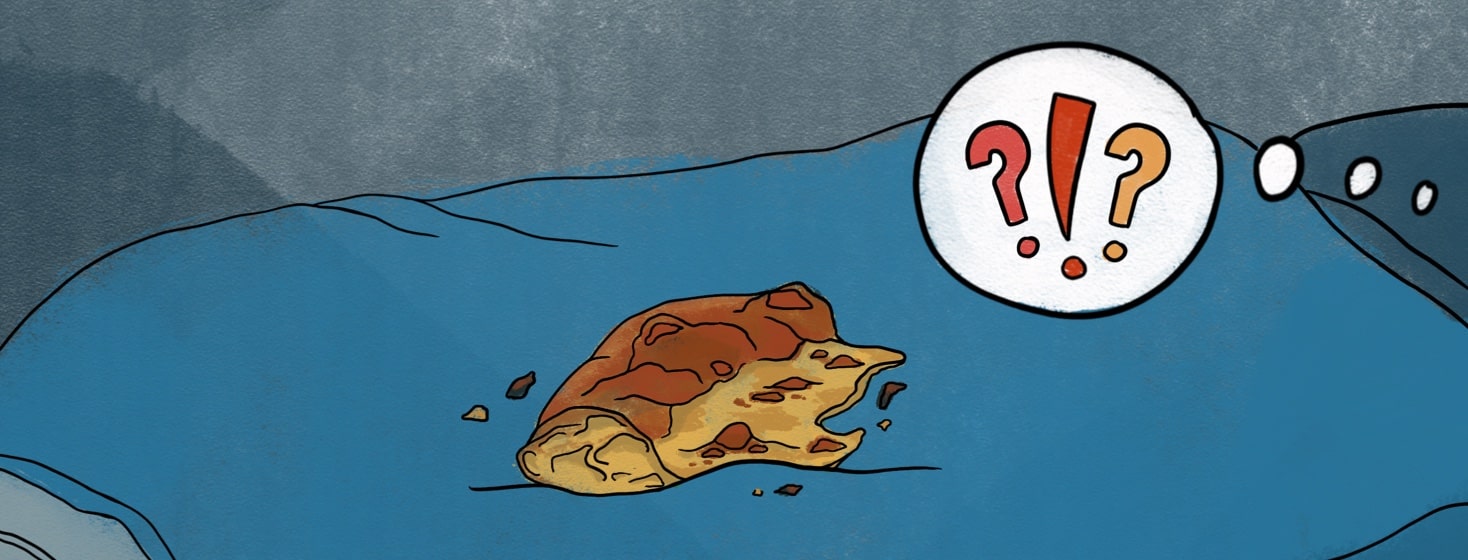My Sleep-Related Eating Disorder
A couple of years ago on a Sunday morning, I awoke in my bed stretching across my pillows I was met with crumbs on my pillow. What was worse was the half-eaten slice of pizza lying on my pillow. I did not have a pizza the night before, so I was perplexed about how it got there.
Waking up to a very cranky housemate, who was looking in the fridge with utter disdain that half her pizza was gone. As I walked in, I was not sure who was more shocked, her or me. It took mere seconds for me to realize that there was pizza missing and pizza crust on my pillow.
I tried to make light of the situation and sheer confusion by asking her if she had eaten pizza in my bed the previous night as I had found crumbs and crust on my pillow. She was livid, and I was confused. This was the the start of a scary and unhealthy disorder I did not know existed.
No recollection
The thing is that I had no recollection of eating this pizza.
As time progressed this would become the norm for me. I wake up with the most random things half-eaten on my pillow or my nightstand with no memory of what or how much I had eaten. Being an adult I found this very unsettling. I had never dealt with sleepwalking or anything of the sort, so how was this happening to me?
It was time to go to the doctor to get some answers.
Going to the doctor
The first time I brought this up my doctor looked at me with utter disbelief, and could not understand how I was eating while I was asleep with no memory of these midnight meals.
She did, however, refer me to someone who could help me - a psychiatrist. I was sent for therapy and given some medication to prevent me from getting up at night to eat.
The medication did not help at all, so that was soon stopped. I did however continue with the therapy and I still do continue to go.
Managing weight gain
The issue was this was going to take years to get some kind of handle on it, and, in the meantime, I had gained at least 55 pounds while attempting to work out this new, strange symptom.
The weight would prove be the most difficult to lose, and years later I am still working on losing that weight. People around me simply thought that I was not taking care of myself, and, on multiple occasions, I was accused of letting myself go and not looking after myself. This caused very severe weight and body image issues over the years.
The impact on my mental health
The impact that this had on my mental health over the years has been immense and this is something that stays with me still today. I have relapses a few times a year and they can be devastating. They can cause anxiety attacks and stop me from sleeping entirely.
Through intensive and consistent therapy I have managed to get it to a point where I do not eat in my sleep as often as I used to. For me, stress triggers will induce serious episodes of this sleep-relate eating disorder so I try and manage those as best I can.
Managing my sleep-related eating disorder
Keeping my cupboards full of ingredients rather than ready-made food and snacks makes a difference. This means that when my sleepy self is wandering the kitchen there might not be "easy access" food, which makes it less likely for me to eat.
While sleepy me is not opposed to eating a carrot or some cucumber, I am more likely to reach for leftover food or snack-type food. I also keep water next to my bed in the hope that I will grab that first, but this is rarely successful.
During times when my sleep-related eating disorder is at its worst, it affects my insomnia greatly and can trigger a really bad spell of days with little to no sleep, due to the anxiety of slipping backward. This becomes that much harder to manage as this is not my only insomnia trigger.
This will continue to be something I have to manage in my life, and I have accepted that part of me.

Join the conversation